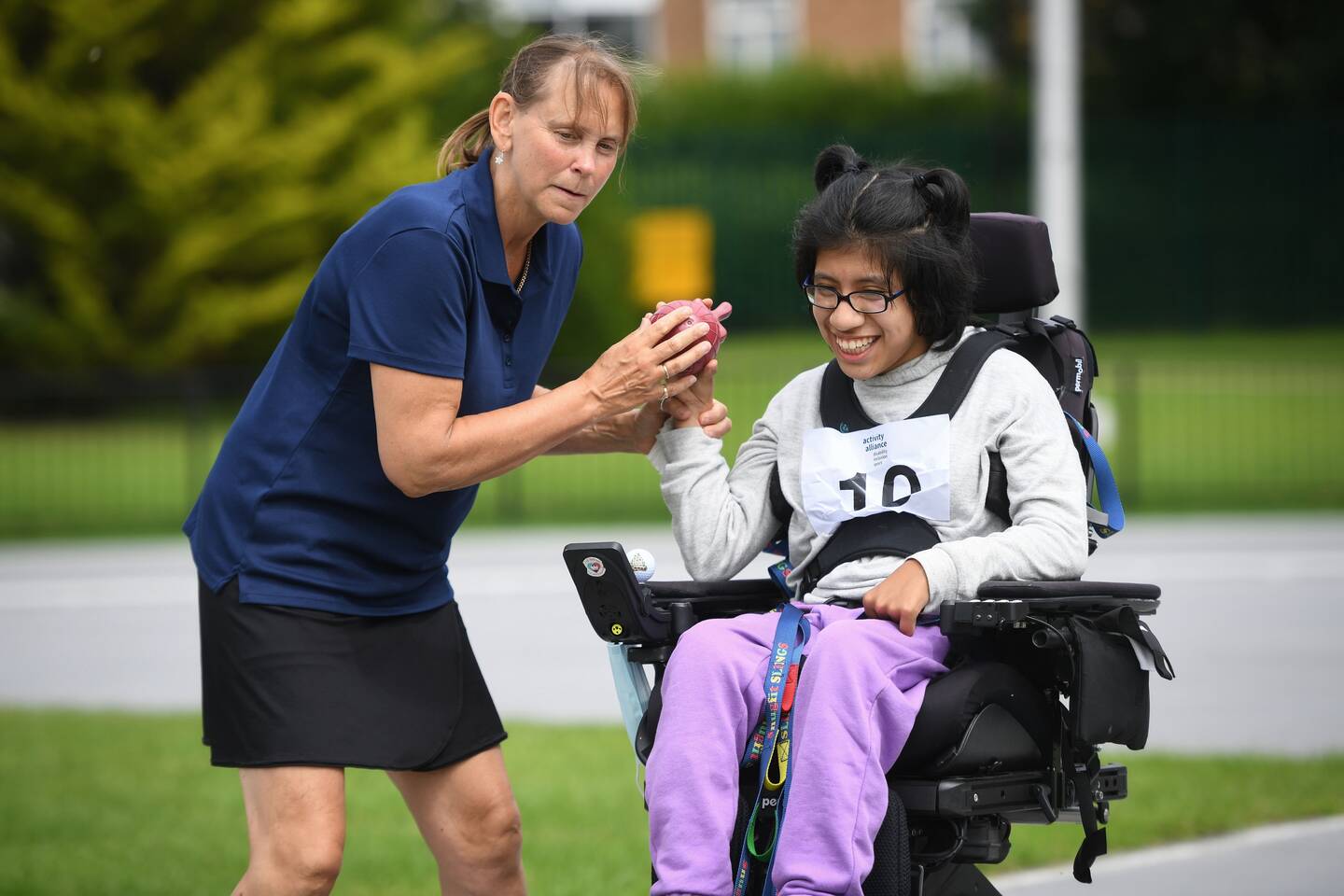Breaking Barriers: Supporting Disabled Teenage Girls to be Active
Led by Access Sport, the Sweaty Betty Foundation, Women in Sport and Nuffield Health a new study sheds light on the untold struggles of disabled teenage girls in accessing sport and exercise.

Breaking Barriers: Supporting Disabled Teenage Girls to be Active builds on Women in Sport’s ‘Reframing Sport for Teenage Girls’ insight, highlighting that inactivity is contributing to disabled teenage girls experiencing worrying mental health issues, including being less happy and more anxious.
With too many girls (43%) disengaging from sport and exercise in their teens, a trend also seen among disabled teenage girls[1], this lack of activity only exacerbates a worrying dip in well-being for teenage girls more generally[2].
Conducted via focus groups and a national survey, the ‘Breaking Barriers’ project explored disabled teenage girls' attitudes towards sport and exercise, focusing on those aged 11-19 years who have a disability, impairment, long-term health condition, or are neurodivergent.
The study reveals:
- Many disabled teenage girls understand the benefits of playing sport or exercising and want to do more. 67% of disabled teenage girls want to be more active.
- Disabled teenage girls are frustrated by the lack of suitable opportunities outside of school. 53% said they would take part in sport and exercise if there were more opportunities outside of school.
- Disabled teenage girls face additional barriers to being active compared to non-disabled teenage girls. 54% of disabled teenage girls felt coaches or instructors didn’t understand their impairment, health condition, illness or disability.
- Girls only opportunities help girls find joy in sport and, for many disabled teenage girls, participating with other disabled girls is important. 54% of disabled teenage girls wanted to take part with other disabled young people.
- Coaches and instructors play a key role in creating a non-judgmental and welcoming environment. 50% of disabled teenage girls said it would be easier for them to be active if coaches or instructors could adapt activities to their needs.
These findings serve as a stark wake-up call, but amidst these challenges lies a call to action for the sport for development sector.
Helen Rowbotham, Access Sport CEO, commented:
"Every girl deserves the chance to experience the benefits of sport, but when 64% of disabled girls admit to not participating regularly, and over half asking for more accessible opportunities, it's clear we have work to do. It's not about sport for sport’s sake; it's about empowerment, inclusion, and a brighter future for disabled teenage girls."
Stephanie Hilborne OBE, Women in Sport CEO, adds:
"All teenage girls are at risk of dropping out of sport but disabled girls experience additional barriers to participation and as a result enjoy sport less. This is unacceptable and cannot continue. This vital research marks the start of that change. All girls deserve to experience the joy and life-long benefits of sport and we must ensure they are not being pushed out."
Sport and exercise providers have been asked to use the findings to:
- Build their understanding of disabled teenage girls' needs and their attitudes towards sport and exercise.
- Provide more inclusive offers for a disabled teenage girl audience, that prioritise fun and are judgement-free.
- Better educate coaches in disability-inclusive sport and exercise.
Commissioners, funders and policymakers are also urged to:
- Prioritise inclusive coaching in the education and professional development of the sport and exercise workforce.
- Invest in more inclusive opportunities both in and out of school for disabled teenage girls.
- Ensure future research focused on teenage girls’ experiences recognises that they are not a homogenous group and applies an intersectionality lens.
By embedding these recommendations in their ongoing work, Access Sport believes that the Government, the sport for development sector, and community sport providers, can collaboratively make a tangible, positive difference in the lives of disabled teenage girls across the country.
Davina Deniszczyc, Medical and Charity Director, Nuffield Health, commented:
"This research provides valuable data to help us understand and identify the barriers teenage girls and disabled teenage girls face when accessing physical activity and sport. Critically, we need deeper insight into the experiences disabled girls face to ensure they aren’t excluded or miss out on all the benefits that sport and physical activity brings. Our ambition is that this data, and these valuable partnerships, will help build more inclusive programmes and initiatives that will improve the health of disabled girls and allow them to be more active."
Afsana Lachaux, Sweaty Betty Foundation Director, added:
"This research empowers disabled teenage girls to be heard and highlights the urgent need to tackle the barriers they face in sport and exercise. Partnering with Access Sport, we're committed to breaking down these barriers and ensuring every girl experiences the life-changing benefits of being active."
The full report is availabe to read on Access Sport's website.
[1] Women in Sport (2022) Reframing Sport for Teenage Girls
[2] Girl Guiding (2023), Girls’ Attitudes Survey 2023